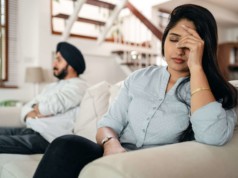Have you ever noticed how your confidence skyrockets when you have an active lifestyle? Or how blah you feel when you’re camped out on the couch, not interested in working out or having a romantic evening with your partner?
Exercise and relationships go hand in hand because exercise plays a direct role in how you feel on every level. Not only does it increase your physical, emotional, and mental well-being, it also gives you self-confidence. When you feel good, you look good—it’s as easy as that. If that’s the case, why it is so tough for many of us to stick to a healthy diet and exercise routine?
We’re creatures of habit, and many of us are over-booked. We work long hours, commit to too many things outside of work, and often put our most important relationships on the back burner. We don’t prioritize ourselves, and we take the people around us the most for granted.
This is a vicious cycle. It’s important to eat nutritious food to fortify your brain, but it’s just as important to stay active so that you have a healthy body that’s capable and able to give you joy. Does being active really mean you’ll have better relationships?
Healthy Body, Healthy Relationships
When we’re active, we release dopamine. That’s the natural feel-good chemical that makes us more likely to connect with other people. We also get boosts of adrenaline, and that energy can carry us throughout the day.
How many times have you bailed on a date with a friend because you were too tired or “just not feeling it?” How many times have you avoided sex with your partner because you didn’t feel good about yourself or were just exhausted? Exercise and being active can take care of both of these scenarios.
Even better, you can exercise with your partner or friends to double down on the benefits.
Being creatures of habit mean we probably do the same things with our partners or friends and never even realize it.
Most of the times, these “things” aren’t very active. It’s probably Netflix-ing with one person or hitting up happy hour with a co-worker on Friday. There’s a good chance the other person also wants to be more active, so why not offer up another option with them?
Take a hike, go to the gym together, or sign up for a partner yoga class. You might be surprised by how readily they agree, and it could be the start of a new habit for you both.
Getting Outside Your Comfort Zone
Embracing a more active lifestyle can be intimidating. It’s common to have false starts, or to think you’ll love an activity and end up hating it.
That’s normal and part of the process. However, what’s a big surprise to many who embrace a new active lifestyle is that not everyone in their life is happy about it. You might discover that your friend who you used to go to happy hour with every weekend doesn’t support your new lifestyle.
This could be for many reasons. They might feel guilty for not being active themselves, but they may not be ready to change. They may also notice that you’re looking better, gaining confidence, or maybe hanging out with new friends in a hiking club.
What’s more disheartening is if your partner doesn’t support your habits. This could be for similar reasons as your friend, but with the added idea that they may think you’ll leave them if you’re on a new journey they’re not a part of. In some severe cases, you may lose friends.
However, it’s often revealed that these “friends” aren’t who you need in your life. Of course, working with a partner who doesn’t support you is different. It may require keeping your active lifestyle separate from them and creating your own support network.
When Relationships and Activity Thrive
Fortunately, in most cases, you’ll only experiences positives in your relationships when you get more active. You’ll have more energy, have more to talk about, and might discover mutual goals with those in your life.
Signing up for a 5k with a friend or partner gives you something to work on together (and it’s a lot more engaging than finding a new show to binge together). All of the benefits that come from an activity will naturally spill over into your relationships. This includes feeling better about yourself, having something you look forward to every day, and becoming a healthier person.
Remember that “health” isn’t just about the physical. It’s also mental, spiritual, and emotional. When you nourish this part of yourself, you’re creating a healthier person and partner in all of your relationships. By prioritizing yourself, you’re really “filling your own up” before filling someone else’s.











